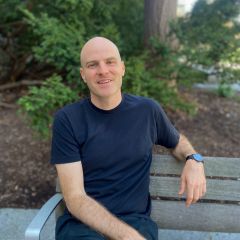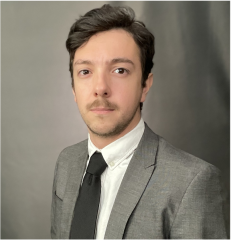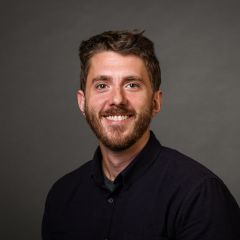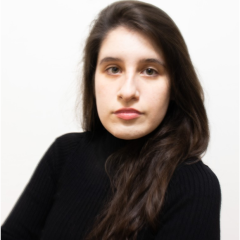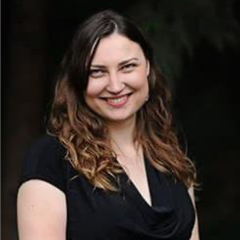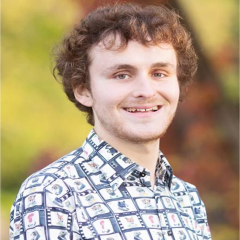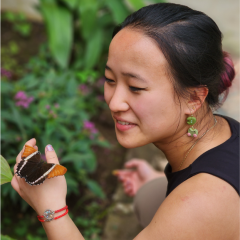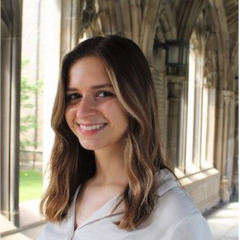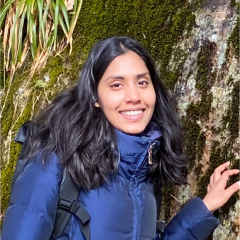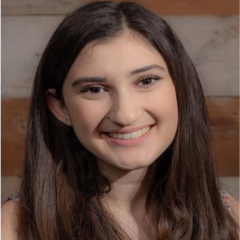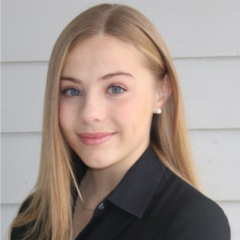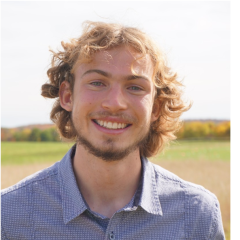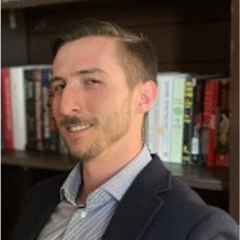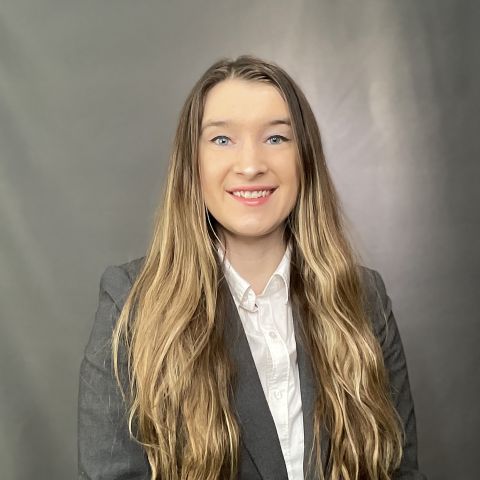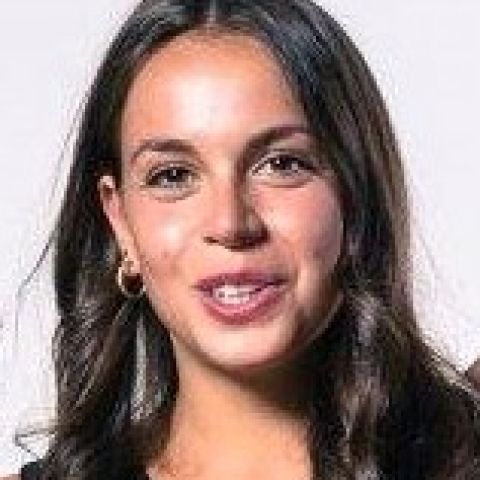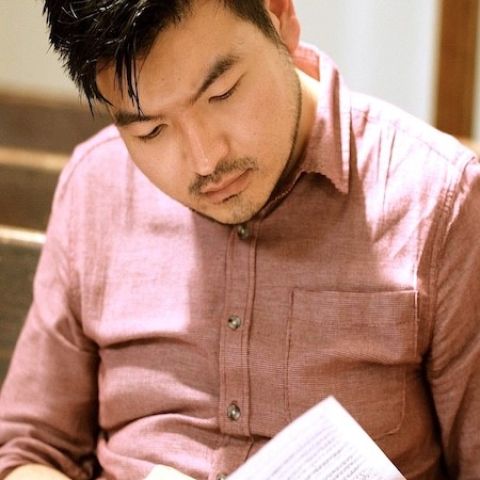Institute for European Studies
Soviet Collapse in the Fullness of Time: Lessons for Putin's Russia, Xi's China, and Beyond
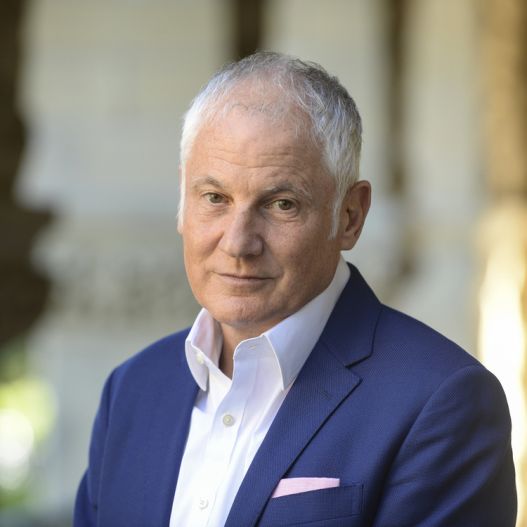
September 13, 2023
5:00 pm
Clark Hall, 700
What lessons have Vladimir Putin and Xi Jinping drawn from the Soviet collapse, and what lessons are they failing to draw? Renowned historian Stephen Kotkin, Kleinheinz Senior Fellow at the Hoover Institution at Stanford University and Professor in History and International Affairs emeritus at Princeton University, will talk about how we might see the Soviet collapse, looking back more than three decades. Was the collapse predictable? Did a new world order emerge, and is one emerging now? Could such a collapse be repeated? How can we use history to illuminate the present, and potential futures, and when does history fail us?
Professor Kotkin's talk is the Institute for European Studies' inaugural Luigi Einaudi Distinguished Lecture.
This event will also be livestreamed. No pre-registration is required.
Additional Information
Program
Institute for European Studies
Reppy Institute for Peace and Conflict Studies
Einaudi Center for International Studies
Amelia C. Arsenault
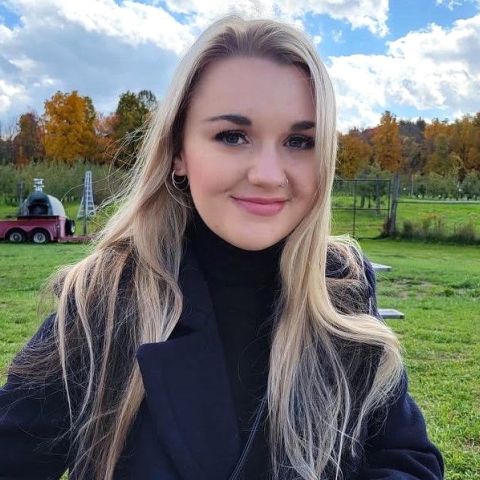
Reppy Fellow 2023-24, IES Graduate Fellow 2024-25
Amelia C. Arsenault is a PhD student at Cornell University’s Department of Government. Her research considers the effects of artificial intelligence on international politics, with a particular interest in the global proliferation of contemporary surveillance and smart city technologies.
Additional Information
Program
Role
- Student
- PACS Past Graduate Fellow
- Graduate Fellow
- Graduate Student
Contact
Email: aa2758@cornell.edu
International Fair 2023

August 30, 2023
11:00 am
Uris Hall, Uris Hall Terrace
The annual International Fair showcases Cornell's global opportunities for undergraduate and graduate students. Explore the fair and find out about international majors and minors, language study, study abroad, funding opportunities, global internships, Cornell Global Hubs, and more.
The International Fair is sponsored by the Mario Einaudi Center for International Studies and Office of Global Learning (both part of Global Cornell), with Cornell's Language Resource Center.
Register for the event on Campus Groups.
Additional Information
Program
Einaudi Center for International Studies
Reppy Institute for Peace and Conflict Studies
East Asia Program
Southeast Asia Program
Latin American and Caribbean Studies
Institute for African Development
Institute for European Studies
South Asia Program
IES 2023 Awards and Fellowships

We are pleased to announce the Institute for European Studies 2023 awards for graduate and undergraduate students. Our grants and fellowships support research in Europe and projects focused on European studies.
Our awardees study in a variety of disciplines, including Government, Archaeology, German Studies, Romance Studies, History, Plant Pathology, Classics, Architecture, Public Policy, Sociology, Music, and more. They will travel for research to Spain, the United Kingdom, Italy, Denmark, Israel, Belgium, Greece, France, and the Netherlands.
Congratulations to all winners of our awards, and best of luck with research and travel to Europe!
Additional Information
Program
Testimonies of Migration: International Studies Summer Institute 2023

June 27, 2023
9:00 am
A.D. White House
Registration for this event is now closed. You can ask to be put on the waitlist be emailing SBP84@Cornell.edu
The 2023 International Studies Summer Institute (ISSI) will explore testimonies of migration. The ISSI is a professional development workshop for practicing and pre-service K–12 educators hosted annually by the Mario Einaudi Center for International Studies, in collaboration with the South Asia Center at Syracuse University.
During this cross-curriculum conference, educators will engage in discussions, workshops, and lectures that explore and amplify personal narratives of migration. Professors, postdoctoral fellows and other scholars from Cornell University and Syracuse University will share their cutting-edge research on migrant experiences from across different regions of the world, including South Asia, Southeast Asia, Latin America and the Caribbean, and Sub-Saharan Africa. Speakers will focus on individual narratives, as well as systemic reasons for migration, such as politics, conflict, and climate change.
Sessions will also explore culturally responsive practices when working with migrant students and discussing migrant narratives. Teachers will gain tools for leading conversations and developing projects with their students about migrant experiences.
Teachers will leave the conference with concrete resources to use in their classrooms, a deeper awareness of how to enter into conversation with students about their own and others’ migration experiences, and an understanding of contemporary migrant experiences from across the world.
The 2023 ISSI will be applicable for elementary, middle, and high school educators from all subject areas. Participating teachers will have the option to complete a lesson plan for PD credit that incorporates content from the workshop, with the support and guidance of our outreach staff.
Conference Schedule:
8:45-9:00 Breakfast and check-in
9:00-9:15 Introductory Remarks by Rachel Beatty Riedl
9:15-10:20 Panel: "Ethical and culturally responsive engagement with migrant narratives"
Panelists: Farah Bakaari, Juhwan Seo, Rose Anderson
Moderator: Shannon Gleeson
10:20-10:30 Break
10:30-11:30 Workshop with Mary Jo Dudley, “Supporting Immigrant Families in Schools”
11:30-12:00 Networking and reflection activity
12:00-1:00 Lunch
1:00-1:45 Breakout Sessions
Focus: Project-based learning around themes of migration (same sessions offered twice)
Option 1: Nicole Thuzar Tu-Maung, “Photovoice Methodology” Option 2: Maria Gimma, “Understanding the Global Phenomenon of Migration, a Project-Based Curriculum” Option 3: Nausheen Husain, “Storytelling With Data” 1:45-1:50 Break
1:50-2:35 Breakout Sessions, repetition of above options
2:35-3:00 Break / walk to Johnson Art Museum
3:00-4:00 Workshop with Carol Hockett and Maryterese Pasquale-Bowen, “How the Light Gets In: Contemporary Art and Migration”
4:00-4:20 Introduction to Einaudi Resources with Sarah Plotkin
4:20-4:30 Closing remarks with Sarah Pattison
Sponsored by: Syracuse University, Moynihan Institute for Global Affairs, South Asia Center, Cornell University’s Mario Einaudi Center for International Studies, Southeast Asia Program, South Asia Program, Institute for African Development, East Asia Program, Latin American and Caribbean Studies, Institute for European Studies, Migrations Initiative, TST-BOCES, U.S. Department of Education Title VI Program
Additional Information
Program
Einaudi Center for International Studies
East Asia Program
Southeast Asia Program
Latin American and Caribbean Studies
Institute for African Development
Institute for European Studies
South Asia Program
Announcing 2023 Awards

Einaudi Seed Grants Finding Fertile Soil
Read about new awards and research funded in 2022, including Alex Flecker (Amazon aquaculture) and Victoria Beard (Global Survey of City Leaders).
Additional Information
13 Cornellians Awarded Fulbright U.S. Student Awards

Thirteen Cornell students have been selected to research and teach English abroad with funding from the Fulbright U.S. Student Program.
Cornell's 2023–24 Fulbright students include six graduate students and seven graduating undergraduates whose time abroad will increase mutual understanding between the people of the United States and the people of other countries.
They will join the ranks of over 500 Cornellians who have traveled across the globe as Fulbrighters since the 1940s.
Fulbright Students 2023–24
Graduate Students
Michael Cary, Development Sociology
Paraguay
Project Title: Remaking Ñeembucú: Infrastructure, Rice Production, and Wetland Conversion in Paraguay
Duncan Eaton, History
Slovak Republic
Project Title: Nation-Building and Agrarian Politics in Interwar Eastern Slovakia
Jarvis Fisher, Development Sociology
Senegal
Project Title: Rice Production and Agroecology in the Senegal River Valley
Giselle Hobbs, Painting and Print Making
France
Project Title: The Aftermath of the Lockdown: Comparative Study of Paris, France, and the U.S.
Sasha Prevost, Religious Studies
Israel
Project Title: On the Path of Two Abrahams: Contemporary Jewish Sufism in Israel
David Rubinstein, History
Poland
Project Title: Coal Town Cosmopolitanism: Jews, Germans, and Poles's Visions of Home in Postwar Walbrzych
Undergraduate Students
Laura Chang '23, Anthropology
Ecuador
Project Title: Intersections in Reproductive Health: The Integration of Kichwa and Western Medicines
Maria DiGiovanni '23, Development Studies
Italy
Project Title: How Young Italians in Cosenza, Calabria Maintain Sustainable Rural Livelihoods
Farzana Hossain '23, Architecture
India
Project Title: Cultivated Landscapes: The Making and Remaking of Agriculture
Sarah Hughner '23, Government and English
Timor-Leste
English Teaching Assistantship
Catherine Kopp '23, Applied Economics and Management
Czech Republic
English Teaching Assistantship
Dylan Rodgers '23, Agriculture
Nepal
Project Title: Feasibility of Small-Scale Recirculating Aquaculture Systems in Nepal
Evan Sierra '23, Government
Kazakhstan
English Teaching Assistantship
Will you be next?
Fulbright at Cornell is administered by the Einaudi Center. There are opportunities for undergraduate students, graduate students, and recent Cornell alumni to apply—Einaudi supports you throughout the process!
Additional Information
The Political Legacy of Forced Migration: Looking at Evidence from a Post-WWII Germany
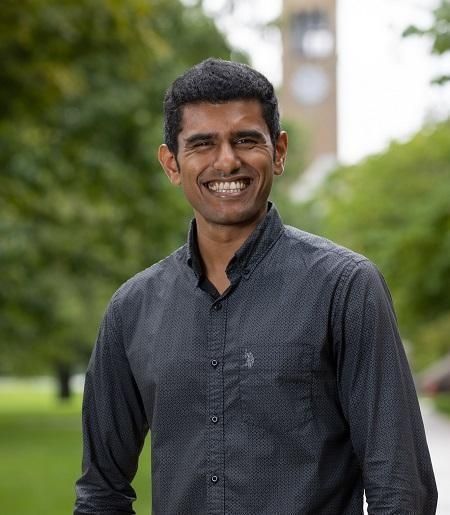
May 4, 2023
12:00 pm
Uris Hall, Einaudi Conference Room 153
Dr. Anil Menon argues that "forced migration can foster a strong group identity among refugees, which can mobilize them toward political parties that champion their identity-based grievances." Join us to discuss and hear Dr. Menon present his methodologies, analysis, and results of this argument in his recently published work The Political Legacy of Forced Migration: Evidence from Post-WWII Germany.
Dr. Anil Menon is a Klarman Postdoctoral Fellow in the Department of Government at Cornell University. His research examines how traumatic experiences – ranging from interstate wars and forced migration to public health crises – shape short- and long-term political attitudes, behaviors, and institutions. Dr. Menon's work on these issues has been published at both academic and policy journals – American Political Science Review, Comparative Political Studies, The Economic Journal, PLOS ONE, International Journal of Public Health, and Current History – and has been featured in popular press outlets like the Washington Post: Monkey Cage and The Conversation.
In-person capacity for this event will be limited, please register using the Zoom link below. Lunch will be provided.
Additional Information
Program
Institute for European Studies
Einaudi Center for International Studies
Fractured Futures: Armenians and the Fall of the Ottoman Empire (1918-1923)
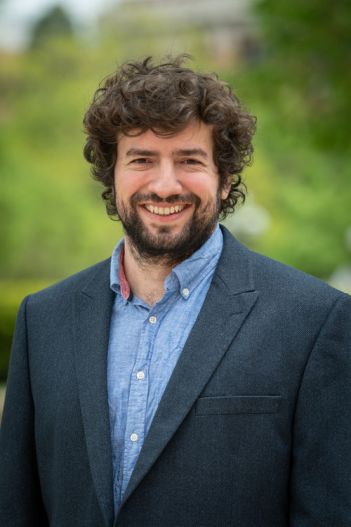
April 25, 2023
4:30 pm
White Hall, 106
The Armistice of Mudros was signed on 30 October 1918 and on the morning of 13 November 1918, a mighty fleet of battleships from Britain, France, Italy and Greece sailed to Istanbul, and dropped anchor without encountering resistance. This day marked the beginning of the end of the Ottoman Empire, a dissolution that would bring great suffering and chaos, but also new opportunities for all Ottomans, Muslim and non-Muslim alike. In this lecture, drawing upon a previously untouched collection of Armenian and Ottoman Turkish primary sources, Ari Şekeryan will analyze these understudied post-war years. Examining the Armenian community as they emerged from the aftermath of war and genocide, Şekeryan will outline their shifting political position and the strategies they used to survive this turbulent period. By focusing on an oft-neglected period in history, the Ottoman Armistice (1918–1923), Şekeryan presents a case study for understanding the political reactions of ethnic groups to the fall of empires and nation-states.
Speaker
Ari Şekeryan received his PhD from the University of Oxford in 2018 and has since held post-doctoral and visiting professorship positions at the University of Wisconsin-Madison, California State University-Fresno, the University of Michigan-Ann Arbor, and the University of Cambridge. His articles have been published in the British Journal of Middle Eastern Studies, Turkish Studies, the Journal of the Ottoman and Turkish Studies Association, and War in History. His latest book, The Armenians and the Fall of the Ottoman Empire: After Genocide, 1918-1923, published by the Cambridge University Press in January 2023.
Register for virtual viewing.
Additional Information
Program
Institute for European Studies
IES Announces 2023-24 Graduate Fellows

The Institute for European Studies announces the inaugural cohort of IES Graduate Fellows. Eight graduate students from various disciplines have been accepted as fellows for 2023-24.
The IES Fellows will advance their research and contribute to the European Studies community by attending and engaging in IES-hosted talks, and by organizing and taking part in collective activities such as a graduate research workshop or discussion group. The Institute supports these activities with a small research stipend to each Fellow. IES Fellows also receive priority for IES research and travel fellowships.
The 2023-24 IES Graduate Fellows are:
Savannah Caldwell
Medieval Studies
Frances Cayton
Government
Matt Finck
History
Stefan Ivanovski
Industrial and Labor Relations
Nora Siena
Romance Studies
Judith Tauber
Romance Studies
Morton Wan
Musicology
Thari Zweers
Medieval Studies

